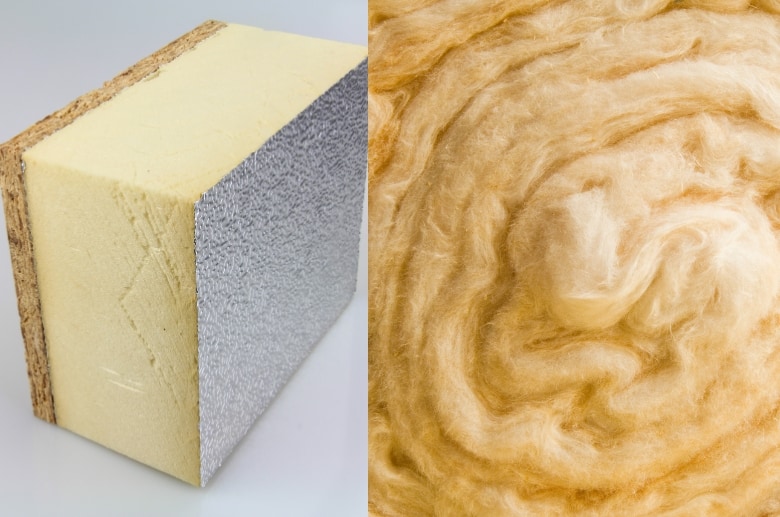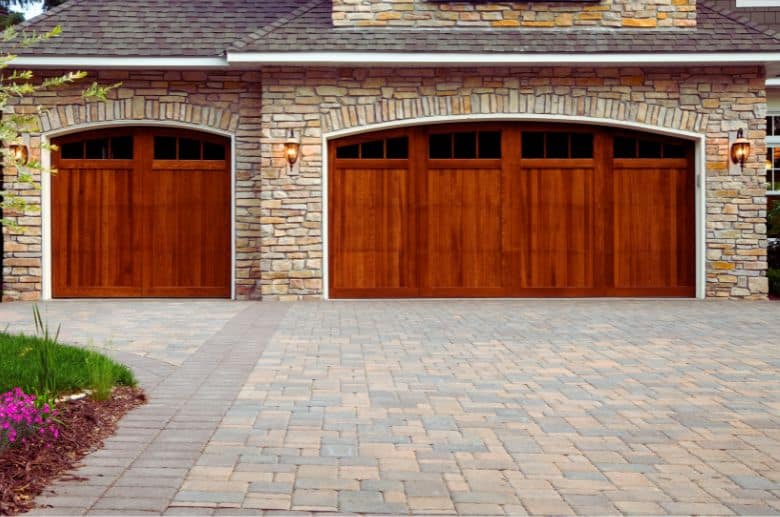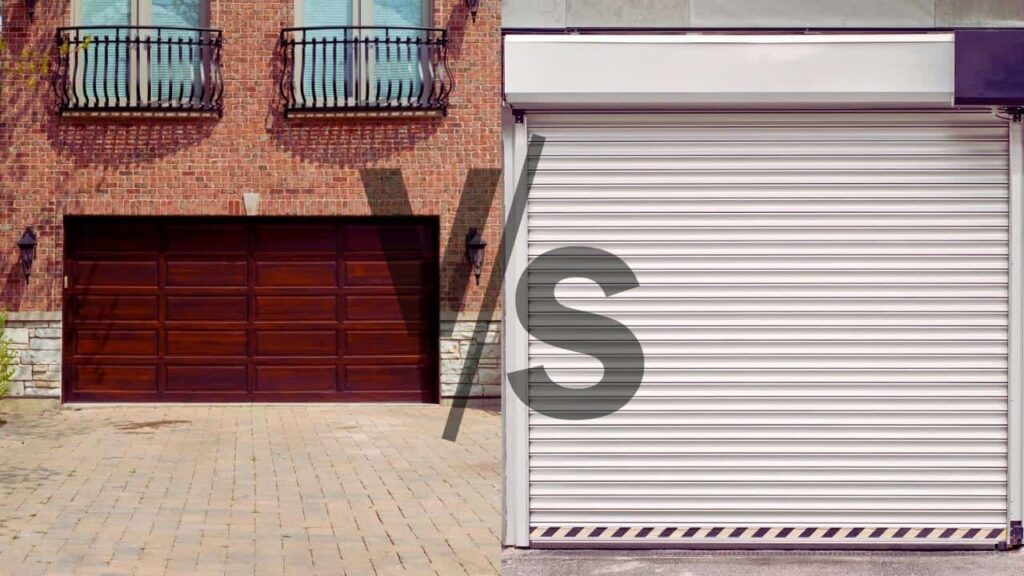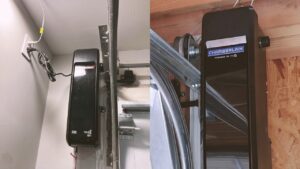When it comes to replacing a garage door, homeowners have a lot of decisions to make. One of the most important choices is whether to go with a steel or wood garage door.
Steel and wood garage doors have unique advantages and drawbacks, so carefully consider which will best meet your needs. In this blog post, we’ll explore the key factors you should keep in mind when choosing between steel vs wood garage doors.
We’ll help you make an informed decision and end up with a garage door you’ll be happy with for years.
Steel Vs Wood Garage Doors: Which is Better?
When it comes to selecting a garage door, both steel and wood have their benefits. However, steel is superior due to its strength, longevity, and low maintenance requirements.
That being said, wooden garage doors have their strengths, such as their classic and natural appearance and the ability to be easily customized to fit the specific style of your home.
To help you make an informed decision between steel and wood garage doors, here is a handy table that outlines the key distinctions between these two materials:
| Feature | Steel Garage Doors | Energy is efficient with an R-Value of R-3.5 to R-14 or higher depending on the insulating material. |
| Durability | Highly resistant to damage and elements | More prone to wear and tear from elements |
| Longevity | Can last up to thirty years | Can last up to 20 years, but with proper maintenance |
| Maintenance | Low Maintenance | High Maintenance |
| Insulation | Energy efficient with R-Value of R-3.5 to R-14 or higher, depending on the insulating material. | Moderate energy efficiency, but can be improved with insulation. Non-insulated wood has an R-Value of about 2, which is quite low. |
| Cost | $750 for a basic, non-insulated door. | A basic wood door typically starts at $1,000. |
| Customization | Not as extensive as wood garage doors. | Extensive. |
| Appearance | Modern. | Classic. |
| Fire Safety | Steel garage doors offer immense sturdiness and provide top-notch fire safety. | Wood is naturally combustible. |
| Eco-Friendly Options | Steel fabrication involves extensive energy use and produces greenhouse gases as emissions. | Wood is renewable and biodegradable. |
As you can see, steel garage doors are generally more durable, require less maintenance, and have a longer lifespan than wooden ones. They also tend to be more affordable, although they have limited customization options and a more modern appearance.
On the other hand, wooden garage doors are known for their classic and natural appearance and can be easily customized to fit the specific style of your home. However, they require more maintenance and cost more than steel garage doors.
Allow us to expound more on steel and wood garage doors.
Connect With A Garage Expert
Connect with local experts, Compare quotes, Get the best price.
Durability
Steel garage doors are the superheroes of the door world, standing guard against potential threats and extreme weather. Their superior strength and sturdiness make them a smart and practical investment for homeowners.
On the other hand, wooden garage doors are like the classic muscle cars of the garage door world – they look great but can be a little delicate. Wooden garage doors are more prone to damage from weather and wear and tear, like scratches, cracking, and rotting.
For instance, those living in hurricane-prone regions may opt for steel garage doors as they can withstand strong winds and heavy rain.
On the other hand, homeowners in dry, desert areas may choose wood garage doors to better handle the hot and dry climate.
Considering the climate can help ensure that the chosen material can withstand the specific weather conditions in the area, leading to a more durable and long-lasting garage door.
Longevity
A correctly installed steel garage door can last up to thirty years, making it an excellent investment for the future.
Wooden garage doors are still durable and can last up to 20 years or more, but they are also more prone to wear and tear over time, and this means they may require more maintenance and repair over the years to remain looking their best.
Additionally, wooden garage doors can be subject to damage from moisture or extreme temperatures. So, climate conditions should be considered when deciding between steel and wood garage doors.
Maintenance Requirements
If you’re seeking a maintenance-free garage door, look no further than steel! Unlike porous materials, dirt, and grime won’t be absorbed into the surface of steel doors. With a steel garage door, you’ll have little maintenance to maintain its pristine condition – only rust protection and cleaning are required.
However, wooden garage doors require more maintenance than steel ones due to their porous nature. To ensure wood remains in optimal condition for years, it is vital to regularly apply sealants, stains, or paint to protect it from the climate.
Regularly inspecting for warping or other damage is essential to protect your wooden garage door from the damaging effects of moisture.
Additionally, cleaning them with a gentle brush, mild soap, and water solution can help keep them in top condition.
Insulation Options

Steel garage doors typically come pre-insulated with either steel or foamed-in-place insulation, making them a great choice for managing the climate of your garage.
Additionally, choosing insulated steel garage doors can guarantee a reduction in energy costs cause they have a higher R-value.
While wood is a natural insulator, it offers insulation options and can be filled with various materials, including foam and fiberglass.
Insulation Options for Wood Garage Doors:
- Polystyrene Foam: Polystyrene foam is one of the most commonly used insulation materials for wood garage doors, and its R-value per inch is around 4.5. Specifically, a door with 2 inches of polystyrene foam insulation provides an astonishingly high R-value of 9!
- Polyurethane Foam: You can also insulate wood garage doors with polyurethane foam that boasts an R-value of 6.5 per inch. This means that if you equip your door with 2 inches of insulation, the resulting R-value will add up to 13 – providing superior protection against heat and cold!
Insulation Options for Steel Garage Doors:
- Polystyrene Foam: Polystyrene foam is used in steel garage doors but is less effective in wood garage doors. It has an R-value of around 3.5 per inch, which means that a door with 2 inches of insulation will have an R-value of 7.
- Polyurethane Foam: Polyurethane foam is the most effective insulation material for steel garage doors. It has an R-value of around 7 per inch, which means that a door with 2 inches of insulation will have an R-value of 14.
Steel garage doors are more efficient when it comes to insulation, especially with polyurethane foam used. This is because they are usually thinner than wood doors requiring higher-quality insulation for the same efficiency level.
Additionally, polyurethane foam insulation is more effective than polystyrene oam insulation, commonly used in wood garage doors. However, it’s worth noting that wood garage doors can still provide good insulation efficiency when using polyurethane foam insulation.
Cost
Cost is another crucial factor when deciding between steel and wood garage doors. Here’s a breakdown of the cost comparison between the two:
Initial Cost
In terms of initial cost, steel garage doors tend to be less expensive than wood doors. The price of a steel door can vary depending on the size, design, and insulation level, but they generally start at around $750 for a basic, non-insulated door.
In contrast, a basic wood door typically starts at $1,000, and the price can increase significantly depending on the type of wood and design.
Long-Term Cost
You should know steel is susceptible to denting and could require costly panel repairs or replacements if damaged. Moreover, steel doors are vulnerable to rust, leading to corrosion and structural issues over time.
On the flip side, wooden garage doors require regular upkeep, such as staining and painting. Even so, they are usually more resilient than their steel counterparts and can last for multiple decades with proper maintenance.
To close the cost case, each of the two garage door materials can cost you more or less depending on the following factors:
- Frequency of use
- Climate
- Maintenance practices
- Type and design
The ultimate decision boils down to your needs and budget. Steel is likely the best choice if you’re searching for an affordable garage door option. However, if you have a larger budget and want a classic touch, investing in a wooden door could be right.
Connect With A Garage Expert
Connect with local experts, Compare quotes, Get the best price.
Aesthetic Appeal

Wooden garage doors give your home an inviting, classic aesthetic that you can tailor to fit the style of your residence. You can easily enhance wood’s natural grain and texture with various stains and finishes, allowing for a warm look with added curb appeal.
You can also sculpt wood into elaborate patterns to evoke a more personalized, one-of-a-kind aesthetic.
Here’s what we mean:
- Wooden garage doors range in material, ranging from luxurious cedar and resilient redwood to sophisticated mahogany, each with unique characteristics.
- Wood doors can also be painted or stained to match the color of a home’s exterior or left in their natural state to showcase their beauty.
Conversely, steel garage doors present a modern aesthetic that can blend seamlessly with contemporary or industrial-style homes. Steel garage doors offer many options, whether the smooth, textured, or embossed finish blends seamlessly fitting with your home’s exterior.
Overall, the choice between a steel or wood garage door comes down to personal preference and the style of the home. Both offer unique aesthetic appeal and a wide range of design options.
Weather Resistance
As you contemplate selecting between steel and wood garage doors, you must consider how well each will withstand the elements. Both materials possess distinct advantages and disadvantages that you must evaluate based on your specific climate conditions.
Steel garage doors are generally more durable and resilient than wood ones in extreme weather conditions. Some of these conditions include:
- High humidity
- Heavy rain
- Snow,
- Strong winds
Steel garage doors are ideal for areas suffering from severe storms, as they can withstand even the strongest gusts and impacts from loose materials. In comparison, wood doors lack resistance and may be prone to damage or warping when faced with these elements.
On the other hand, wood garage doors can be a great option in moderate climates, where weather fluctuations are less severe. Wood is a natural insulator that can keep your garage warmer in the winter and cooler in the summer, reducing energy bills.
Fire Safety

Wood is naturally combustible, so it is essential to consider your area’s fire safety regulations. Depending on the kind of wood and its density, wooden garage doors have a fire rating ranging from 30 to 60 minutes. This means that the door can withstand the fire for a specific period, giving occupants enough time to evacuate the property safely.
Nevertheless, one can considerably raise the fire rating of a wooden garage door by utilizing heat-resistant layers or materials.
Alternatively, steel garage doors offer immense sturdiness and provide top-notch fire safety. They are fireproof compared to their wooden counterparts, making them the safer choice for many homeowners.
The fire rating of steel garage doors can range from 20 to 90 minutes, depending on the gauge and type of insulation used. Steel doors are renowned for their fire-resistant qualities, providing a formidable barrier against external fires like wildfires.
To sum up, steel garage doors offer superior fire safety compared to wood. But if wooden garage doors are a must-have for you, outfit them with fire-resistant coatings or use materials that can effectively withstand heat.
Eco-Friendly Options
Using steel and wood affects the environment differently; we’ll explain it below.
Recyclable Options for Wood Garage Doors

Wood is a great choice if you’re an environmentally conscious consumer searching for recyclable options for your garage door! Not only is it renewable and biodegradable, but there are two types of wood garage doors from which to choose: composite and reclaimed.
- Composite: Composite wood garage doors offer the charm and appeal of natural wood with none of the upkeep. They are also recyclable, meaning they can be downcycled into more items! Unsurprisingly, this type of door is a top choice for homeowners looking to upgrade their property.
- Reclaimed: Reclaimed wood doors are a perfect choice for those looking to give their garage door a unique, rustic look while reducing their environmental impact. These doors are constructed from repurposed wood salvaged from other structures, keeping perfectly good materials out of landfills.
Recyclable Options for Steel Garage Doors
For eco-friendly options, two garage door varieties are accessible: recycled and insulated steel.
- Recycled: Repurposed steel garage doors are crafted with recycled steel from other sources, including automobiles, appliances, and construction materials. By utilizing recycled steel instead of creating new material for these products, the demand for natural resources is diminished, resulting in a meaningful environmental benefit.
Comparison of Environmental Impact
As you distinguish between wood and steel garage doors, it is essential to consider their entire lifecycle from production to disposal. Wood may indeed be renewable and biodegradable. However, producing it necessitates high energy and hazardous chemicals in its treatment process.
Furthermore, shipping wooden frames increases fossil fuel consumption compared to steel alternatives. Conversely, steel is a resilient material that can be recycled and repurposed.
Deciding between wood and steel garage doors can be tricky, so consider the ecological impact of each material. Consider how easily they are recycled, manufactured, transported, and disposed of to make sure you pick an eco-friendly option for your garage door.
Additional Factors to Consider
In addition to the abovementioned factors, it is essential to consider more elements when choosing between steel and wood garage doors.
Ease of Repair
When it comes to repairing, steel garage doors are far simpler to fix than wooden ones.
Fixing a steel garage door is typically easier than fixing a wooden garage door for several reasons.
First, steel garage doors are often lighter than wooden doors, making them easier to handle and maneuver during the repair process.
Second, steel garage doors are less susceptible to warping, cracking, or rotting, which are common issues with wooden garage doors.
Security Features
Security-wise, steel garage doors tend to surpass wooden ones in every way. They are made of more robust, resilient material and fitted with sturdier locking mechanisms, making them harder to break into than their wood counterparts.
Furthermore, steel’s superior strength and durability make them unlikely to be tampered with or broken apart easily.
Wood Vs Steel Garage Doors: The Winner
Deciding between wood and steel garage doors comes down to personal preference and your needs. When determining which material is best for specific scenarios, consider the following:
Use wood garage doors if:
- Aesthetic appeal is a top priority. Wood garage doors have a classic and elegant look that can enhance the overall appearance of a home.
- The garage is used as a living or recreational space.
- Maintenance is not a concern. To guard against damage from humidity and bugs, wooden garage doors must undergo regular preservation – that includes staining or painting.
Use steel garage doors if:
- Durability and security are the primary concerns. Steel garage doors are the perfect addition to any home, especially in areas with extreme weather or high crime rates. Not only do they provide unbeatable strength and protection from dents and scratches, but they also have incredible durability against harsh elements.
- Minimal maintenance is desired. Steel garage doors are virtually maintenance-free, requiring only periodic cleaning and lubrication of moving parts for optimal functioning.
- Budget is a consideration. Homeowners on a budget should consider steel garage doors due to their cost-efficiency and the many features they come with.
Regarding longevity and upkeep, steel garage doors have an edge over wooden ones. Not only are they incredibly hardy, but their maintenance costs are almost non-existent, making them a cost-effective and reliable option for years.
Nevertheless, wooden doors come with their unique benefits. From their beautiful design to the exceptional insulation they provide, wood doors offer an array of advantages that are hard to beat.
If you’re looking for professional advice on which option best fits your needs, our team of experienced technicians is more than happy to help you make the right choice. Contact us today and let us know how we can help!




